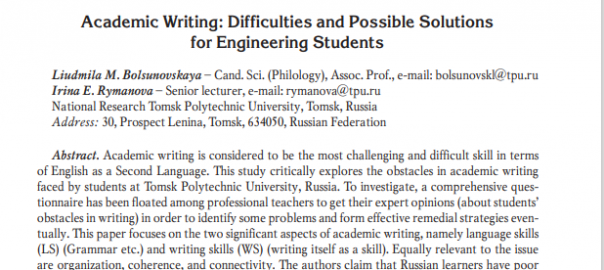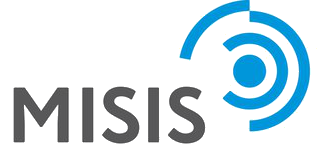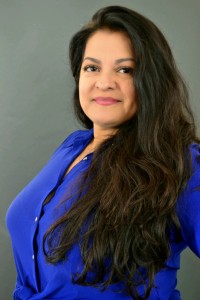
All posts by Academic Writing University Center


2020 NCTE Virtual Annual Convention
Are You Ready for a Dynamic 2020 Virtual Convention Experience?
The 2020 NCTE Virtual Annual Convention will provide exciting opportunities to bring the NCTE community together to engage in dynamic professional development programming, discover ways to connect, and network with other educators. We’ll feature 76 live, 56 scheduled, and 266 on-demand sessions—and if you miss one you can still access it for 60 days afterwards.
You’ll have a front-row seat for our General Sessions, Keynote Speakers, and Luncheon Presentations, including Trevor Noah, who will be kicking off the Opening General Session on Thursday, November 19, in “A Conversation with Trevor Noah.”
You’ll discover opportunities to customize your professional development and hear from fabulous authors, poets, and leaders whose work serves to support and motivate teachers across the country. In addition, our virtual exhibit hall lets you visit booths, see demos, enter giveaways, and experience live events with prominent authors. We’ll also provide inspiration for building classroom libraries with Build Your Stack®—unique sessions where authors and educators talk about using their favorite books in class.
Don’t delay—early bird registration ends October 31. Learn more and register for #NCTE20 today!
Presenter Tips & Office Hours: To prepare for the Virtual Convention, please see our updated Presenter Tips. We’ll also be holding office hours at four different times to give you a chance to ask us questions about the Convention and your presentation. We do need to know who is presenting, so please email annual2020@ncte.org to accept or decline your invitation no later than 8:00 a.m. ET, Monday, October 19.

ReVision & ReForm: Teaching Writing Across Borders
Dear colleagues,
We’re excited to invite you to the (long-awaited, once postponed, and now finally happening!) Virtual International Symposium, ReVision & ReForm: Teaching Writing Across Borders hosted by the Expository Writing Program at New York University. The event is free and open to all.
Continue reading ReVision & ReForm: Teaching Writing Across Borders

Writing, Publishing and Marketing in 2020
Publishing houses traditionally published books but today, authors take on this responsibility themselves. They use their visibility on social media platforms, connections with other authors and the relationship with media outlets to reach their target audience of potential readers.
The level of their influence and reach affects how many books they are able to sell. This is not to say that quality does not play an important role too. In 2020, book publishing and marketing lives largely online and interviews, podcasts, webinars and workshops are all proving to be viable alternatives to the traditional book launch.

Empowering Your Writing in English: Academic vs. General
AWUC offers online course “Empowering Your Writing in English: Academic vs. General”. The course is developed by Academic Writing Center (Higher School of Economics).
This online course shall contribute to the enhancement of academic writing competences aiming to raise the quality of academic texts and publications. Continue reading Empowering Your Writing in English: Academic vs. General

How Screenwriters Can Handle Rejection?
Let’s face it: Rejection is a part of life, and there’s no way you can escape it, no matter how old you are. And for screenwriters, rejection can be crippling at times.
Countless screenwriters want to turn their scripts into movies and TV shows; they want to make a living by writing and selling scripts. So, with the expectation of putting scripts to film, they begin to realize that there tends to be only a few slots for Hollywood to fill. And, with a few slots to fill, screenwriters will become fearful of rejection.
But why?
As we explore this mental health issue a bit further, we’ll also discover how screenwriters can combat these negative feelings of sending a script out only to be rejected. And although rejection can hurt at first, we hope that writers can find it in their hearts to cope with the possibility of rejection and learn from their experience.

5 Tips to Write Correct and Easy to Perceive
Writing correctly and clearly is an important part of learning basic professional skills that you can later use anywhere. If you are not easily understood by your reader, it will be quite hard for you to establish an online presence or build any online relationships. However, in this era where the online environment is taking over, writing effectively is one of the biggest assets you could develop. From writing e-mails to official letters or even essays, you should be preparing yourself for what is to come. Here is a guide on how to write correctly and efficiently and how to improve yourself on this subject.
Continue reading 5 Tips to Write Correct and Easy to Perceive

How to Write Without Muse?
Writer’s block is one of the greatest challenges that most writers around the world face. It doesn’t matter if you write blog posts or American Novels. Writer’s block not only lowers your self-confidence but also steals your writing motivation. So, how do you write when it’s so hard to get going? In this article, we are going to share with you a few simple tips that will help you keep on keeping on. But first, let’s find out what a muse is.

Academic Writing and Rhetoric – September 09
Academic Writing University Center (NUST MISiS) in cooperation with the Association of Academic Writing Experts “National Writing Centres Consortium” and English Language Office (ELO) by U.S. Embassy in Moscow offers free online course Academic Writing and Rhetoric.
This class will focus on developing essential academic reading, writing, and public speaking skills primarily for graduate and post-graduate students and faculty. REGISTER NOW
Course start: September 09, 2020
Duration: 9 weeks
Class time: Wednesday 17:00 – 19:00
Online platform: Zoom
Course Description: This class will focus on developing essential academic research, reading, and writing skills primarily for graduate and post-graduate students and faculty. Participants will develop research, reading, and writing skills needed to be successful in an academic and professional environment. A variety of materials will give the students the opportunity to analyze and comment on written examples, generate their own exercises, improve their own original work, and prepare academic presentations. The class is designed to meet the needs and demands placed on scholars and faculty to read, write, and present formal, research-based academic material.
Prerequisites:
Students who wish to enroll in this intensive, 8-week course must demonstrate the following:
- ability to write a research paper in their field of study
- high level critical thinking skills to comprehend, analyze, evaluate, and respond to complex texts
- vocabulary knowledge and ability to pick up context clues to make inferences
- understand the main ideas and details of complex academic listening sources
- take organized notes on academic lectures
- communicate accurately and fluently using effective presentation skills on academic topics and participate in active discussions
Objectives:
Participants will be able to:
- Develop and apply research strategies to determine validity and academic rigor of source material.
- Expand academic vocabulary to increase class participation and comprehension of academic texts at the graduate level.
- Employ various reading and writing strategies to improve comprehension and expression for academic purposes at the graduate and post-graduate level.
- Evaluate and produce clear, well-structured and complex academic texts.
- Create and deliver presentations of academic material.
- Use online and campus academic resources and support services.
Successful Completion:
Students will be awarded a certificate of completion when they meet/fulfill the following requirements:
- Complete all writing assignments as scheduled on the syllabus (1 Short Article Summary; 1 five-source annotated bibliography; 1 Article Critique).
- Actively participate in classroom discussions when we meet via Zoom and in Discussions on Google (details will be provided in the syllabus).
- Complete one audiovisual presentation using PowerPoint, Slides, Prezi, or any similar online presentation platform via Zoom, Google, or other similar platform (details will be provided in the syllabus).
- Maintain satisfactory attendance in Zoom at or above 75%.
***Additional course objectives and specific assignments will be posted on Google Classroom***
Instructor: Leticia Medina
Email: leticiamedinatx@gmail.com
Leticia Medina is a doctoral fellow at the University of Texas at San Antonio (UTSA) in Texas, where she has also been a Lecturer in the Writing Program and an instructor in the English for International Students (EIS) program. Leticia’s teaching experience encompasses instruction in academic writing as well as teaching World and British literature. Most recently, Leticia taught Advanced English for Academic Purposes to international PhD students from a number of foreign countries, including India, Iran, Bangladesh, México, Brazil, China, Russia, and Angola, among others.
Advanced Academic Writing Course
Instructor: Leticia Medina
This class will focus on developing essential academic reading, writing, and public speaking skills primarily for graduate and post-graduate students and faculty. Participants will develop reading, writing, and speaking skills needed to be successful in an academic and professional environment. A variety of materials will give the students the opportunity to analyze and comment on written examples, generate their own exercises, improve their own original work, and prepare academic presentations. The class is designed to meet the needs and demands placed on scholars and faculty to read, write, and present formal, academic material.
This course has become for me a new impetus to learning English. My educational program involves writing scientific articles. So, I received a huge amount of useful information about specialized scientific journals, rules of clearance and submission of paper, how to avoid plagiarism, rephrase and summarizing my thoughts correctly and many other helpful tips and tricks. Furthermore, this course is not only for improving writing skills, it is also about communication. We discussed different topics with our teacher and other classmates. I can say that my speaking skills get better too. English is a universal language in scientific community. People who want to connect their life with science have to understanding researchers from different parts of the world.


